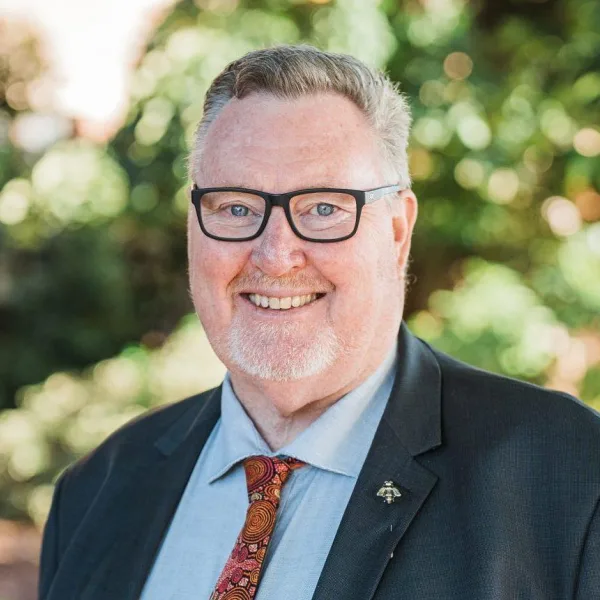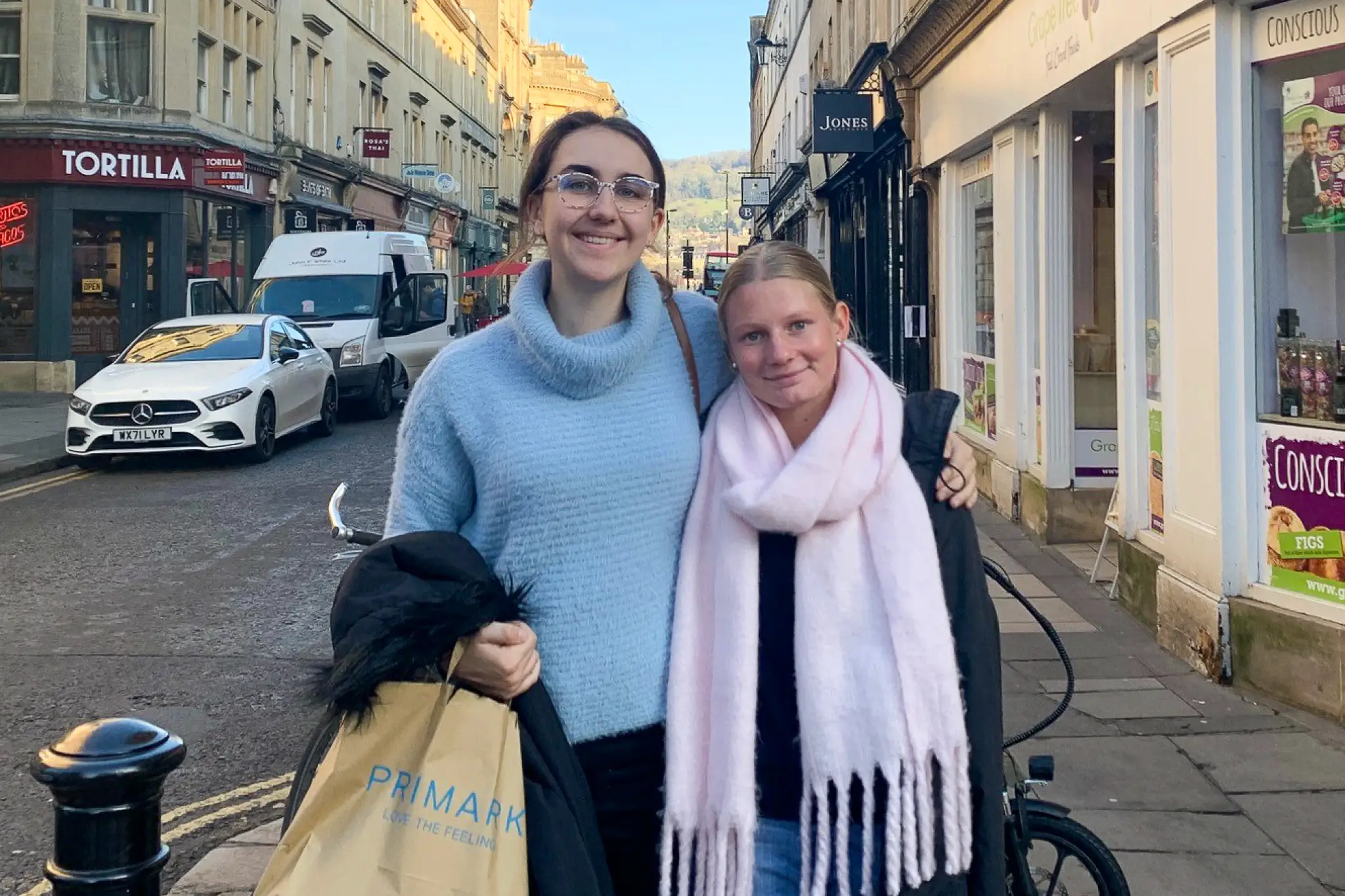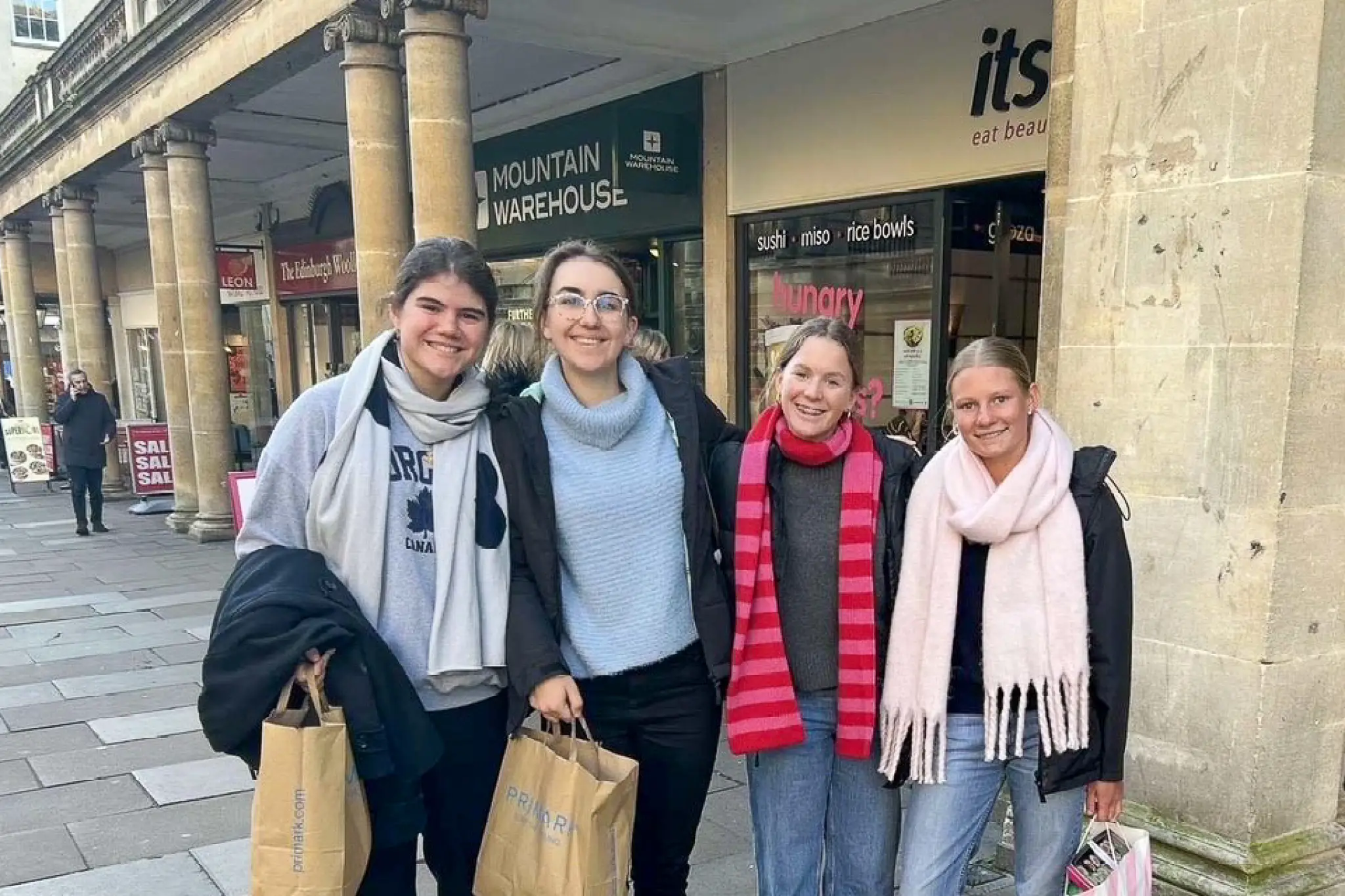
Prev post
Stepping outside their comfort zones and embracing new opportunities, Grade 10 students Audrey and Gracie embarked on an unforgettable exchange at Sherborne Girls’ School in the UK. Their journey was more than just a change of scenery – it was a chance to experience a different culture, form lasting friendships, and gain fresh perspectives both inside and outside the classroom. Now back from their exchange, we recently sat down with them to hear about their favourite moments, the challenges they overcame, and how the experience has shaped them.

What made you decide to take part in the Sherborne exchange program?
Gracie: When I was in Grade 8, Poppy went on this exchange, she came back to tutor telling us all about it, sharing all her stories and how she absolutely loved the exchange. Ever since then it has been my dream to get selected for this exchange.
Audrey: This is all-round a wonderful opportunity, but a few key things stood out for me. One is the marvellous opportunity to be immersed in a different schooling system, and the amazing things you get to learn whilst there. Another is the fact you get to make friends on the other side of the world! Creating these lasting friendships is so rewarding, and these are people that you can stay in contact with for many years to come. The biggest thing, though, is definitely the chance to travel to the other side of the world! Getting to travel so far, especially at a young age, is a rare and wonderful opportunity that can’t be passed up!
Tell us a little about the exchange program. How does the application process and experience work, how long are you there for, what do you get to do whilst taking part?
Gracie: The application process starts with a little booklet you and your guardian fill out, asking about yourself and what challenges you might need to face. Everyone then got a time slot for their interview, the interview was in front of two teachers and they asked different questions about how you will make the most of this opportunity. All the applicants then get brought into a room and the selected students are announced. From then on, flights are booked and support meetings are arranged before we head off to Sherborne. The entire experience lasts for a month overseas and then a month with the exchange student in your home. Whilst on the exchange program, I embraced many amazing opportunities, including subject lessons of a Sherborne girl, a trip to Bath for shopping and a look around the roman baths, living in a boarding house, Saturday socials with the Sherborne Boys’ school and spending time with my exchange family.
Audrey: The application process, open to girls entering Grade 10 at Grammar, involves submitting a form stating what makes you a suitable candidate for the exchange. After the teachers have read through the forms, they invite candidates to a sit-down interview, where you are asked about why you want to participate and how you will overcome challenges. The exchange itself is a month-long experience over the second half of the summer holidays, where you get to experience the English school system alongside an exchange partner. You mostly follow their timetable so they can show you where to go, but they do have opportunities to switch for classes like maths where you may not be at the same level. Alongside schoolwork there are also opportunities to head into town, attend joint socials with the boys’ school, go to after-school clubs, try different sports (like lacrosse), and many more.
Can you describe a typical day in your life as an exchange student in England?
Gracie: We wake up at around 7:20am depending on the day, we then will either head down to breakfast in pyjamas or school uniform. Then we will get ready for the day and walk to an assembly or classes. In the morning, there are three periods of classes, then break, followed by another two periods, then we have an hour-long lunch with hot meals, before doing another four periods of school. We don’t finish classes until around 5pm and it is often pitch black. After school there are normally tennis lessons, gym, or sport to complete. We have a hot dinner at 6:15, followed by an hour and a half of prep, before having free time and savouries at 9pm, with lights out at 9:45pm.
Audrey: Our typical day begins with breakfast at 7:30am, before assembly, grade meeting, or prayers at 8:10am. The school day kicks off in full at 8:30am, where we have our first three periods of the day. Break next, where we head back to the boarding house for a snack, then our fourth and fifth blocks. Lunch runs from 1pm to at least 1:45pm, then sometimes we have a free block and sometimes not. This means lunch can run up to 2:35pm, then we have our last 2-3 classes for the day (school either finishes at 4:10pm or 5pm). At the end of the day is clubs, where you have the option to partake in a range of activities depending on interest, such as creative writing, indoor cycling (spinning), drama, and many more! Wednesdays all the girls take part in either Model United Nations (MUN) or Combined Cadet Forces (CCF). After clubs is dinner at 6:15pm, then homework time after phone hand-in at 7pm. Computer/tablet hand-in is at 9pm, then we get 45 minutes to chill with friends before lights out! They certainly cram a lot into a day, but it works very well.
How does the education system in England differ from your school back home?
Gracie: There are nine periods of classes in a day, instead of our usual six. Their school year starts in September and finishes in June. They also only have three ten-week terms. They have chemistry, biology and physics classes instead of just one science subject. All learning is completed on their iPads (even maths!). Students attend school on a Saturday morning and spend the afternoon going to sports matches at other schools. On a Sunday there is either a morning Abbey service or an afternoon prayers session.
Audrey: England’s education system is remarkably different to ours, as they have thirteen grades that, at least at Sherborne, are arranged into forms. The middle fifth girls are equivalent to our Grade 9/10 students, as the English school year starts in early September, running to mid-July. These students are preparing for their GCSE exams next year, as they have a set of externally assessed exams in Grade 11 and 13. It is also a different structure, as Sherborne is an all-girls school, so that has been an interesting experience.
What subjects or classes have you enjoyed the most during your time there?
Gracie: I have been playing netball three times a week, which I have come to really enjoy. I have also really enjoyed Geography lessons as we are learning about Rio De Janeiro and its culture. Another lesson I’ve loved is cooking, we have been cooking British meals and it is always exciting to try them.
Audrey: I really loved English, where we did an in-depth study of the anthology “Songs of Ourselves”, which the girls will be doing their GCSE on next year. The poems come from authors with vastly different life experiences, and the teacher is incredibly good at helping us unpack the meaning of each! I also loved History, as we did American history. This is something we haven’t covered at Grammar, so it has been really fun learning about an entirely new topic!
Have you shared anything about your own culture and schooling with your host family/classmates?
Gracie: My exchange family had two younger brothers who love to hear stories about the Australian animals and about our school times. The girls and teachers have asked lots of questions about AFL and how easy it is to tan in Australia. No one can understand why our summer holidays are through December and January. The girls also want to know everything about the Norris Nuts and the Bondi Rescue lifeguards.
Audrey: I have told everyone about our gorgeous landscape and native animals we are fortunate enough to have in Australia and have been comparing experiences of schooling systems with my partner and her friends. We have mostly discussed differences in what it is like in Australia, as it is currently summer, as opposed to England where it is the middle of winter.
What has it been like living with your host family?
Gracie: My host family has welcomed me as one of their own. I love going back to their house and having a long shower and a home cooked meal. The family is so lovely and go out of their way to ensure I’m having a great time. I really enjoy leaving the boarding house for a night or afternoon for some silence and space. By the end of my exchange my host family had become a second family.
Audrey: Sherborne is mostly boarders, so I spent most of my time in the boarding house, but I did get to meet my partner’s family for exeat! Exeat is an extended weekend where students are allowed to go home to their families, and my partner’s family live in Denmark! I was fortunate enough to stay with them over there for five days, and they were kind enough to take me on a sightseeing tour of Copenhagen! It was a lovely break from the routine of boarding, and it was nice to meet my partner’s family.
What lessons or memories will you take back with you?
Gracie: I will remember participating in CCF, an army training where you crawl along the ground with fake guns, in full army uniform. I will also remember all the dinners with my host family and the time spent laughing in the car with them. I will always remember going to Budgens,(a service station) to get snacks, then coming back and having a feast on the floor with my exchange. And the night card games with all the girls stacked into our bedroom.
Audrey: I have definitely learned a lot about independence, adaptability, and optimism whilst being on this exchange! To travel as an unaccompanied minor with Gracie we have had to be much more switched-on and prepared as we travelled, so it was definitely good for learning to take care of ourselves. You also have to do your own washing over there, so it’s a good lesson in responsibility too! You have to adjust quite quickly to a foreign environment whilst over there (different times, seasons, people, and structures!) so it’s very beneficial for becoming better at adaptability. When you’re there, sometimes it’s a bit overwhelming when you realise your family is actually quite far away, but it’s very helpful to stay positive and find happiness in small moments!

If your child is interested in participating in this exchange program in the future, applications will be available from Term 3.